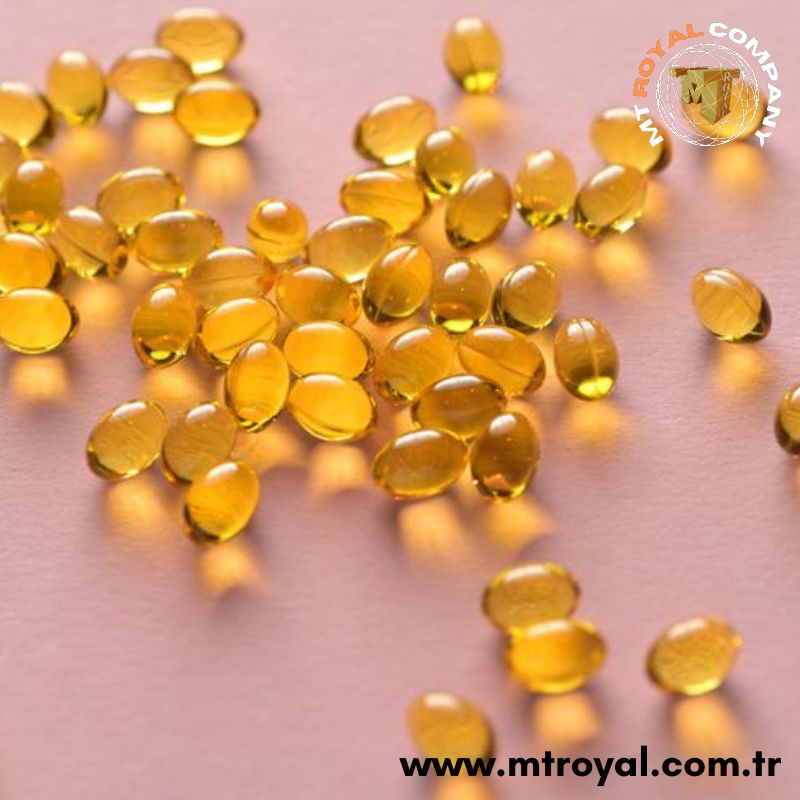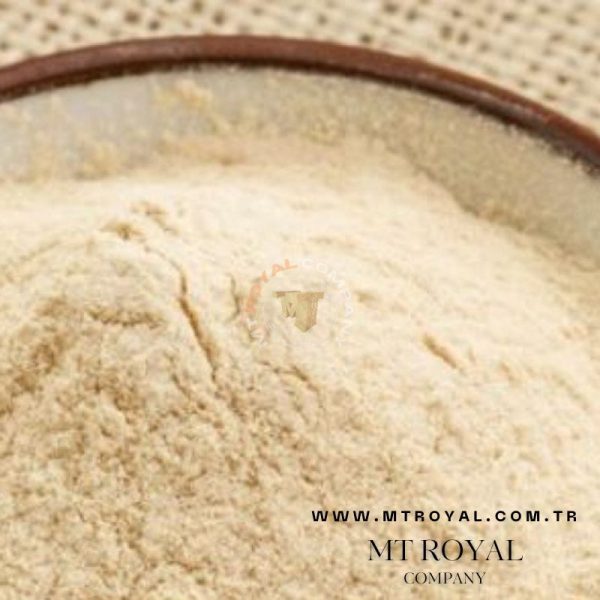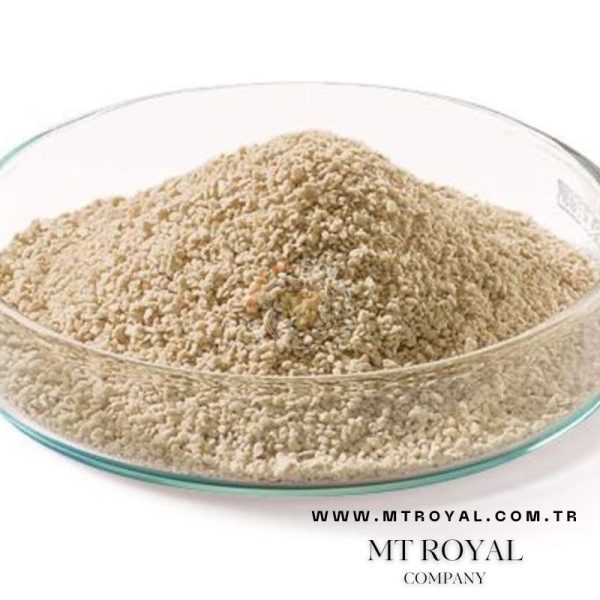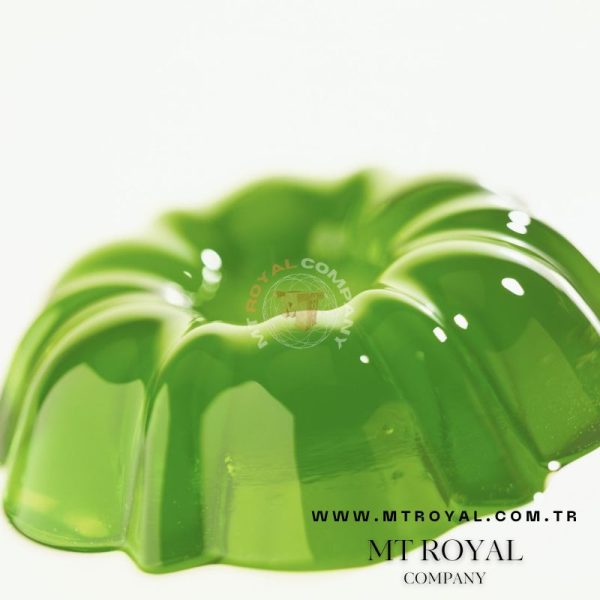Analysis of Vitamin D3
Vitamin D3 is necessary for a variety of bodily functions, the most important being the regulation of calcium and phosphorus levels. Adequate levels of Vitamin D3 ensure that the body can absorb calcium from food, which is vital for strong bones and teeth. A deficiency in Vitamin D3 can lead to conditions such as rickets in children and osteomalacia in adults, both of which are characterized by weakened bones. Additionally, Vitamin D3 supports immune function, reduces inflammation, and may even play a role in protecting against certain chronic diseases.
Key Characteristics of Vitamin D3
- Bone health: Ensures the absorption of calcium and phosphorus, maintaining strong bones and teeth.
- Immune support: Plays a critical role in modulating the immune response and protecting against infections.
- Cell growth regulation: Supports normal cell growth and differentiation, helping to maintain healthy skin and tissues.
- Fat-soluble: Stored in the body’s fat tissues, allowing it to be released as needed when sun exposure or dietary intake is insufficient.
- Stability: Must be protected from light and heat to maintain potency, requiring careful handling in food production.
Uses of Vitamin D3 in the Food Industry
Vitamin D3 is extensively used in the food industry to fortify various products, ensuring that individuals receive sufficient levels of this essential vitamin, especially in regions with limited sunlight. Fortified foods, dietary supplements, and functional beverages are the primary ways consumers increase their Vitamin D3 intake. Below are the key uses of Vitamin D3 in the food industry:
1. Fortified Foods
One of the most common applications of Vitamin D3 in the food industry is the fortification of foods. As many people do not get enough sunlight or have limited dietary sources of Vitamin D3, fortified foods help ensure adequate intake. Vitamin D3 is added to staple foods and beverages, allowing consumers to receive this essential nutrient as part of their daily diet.
Examples of fortified foods include:
- Milk and dairy products: In many countries, cow’s milk, yogurt, and cheese are fortified with Vitamin D3 to promote bone health and prevent deficiencies.
- Plant-based milk alternatives: Almond milk, soy milk, and other non-dairy alternatives are often fortified with Vitamin D3 to provide the same benefits as fortified dairy products.
- Breakfast cereals: Many breakfast cereals are fortified with Vitamin D3 to improve their nutritional value, especially for children and adults who may not get enough sunlight.
- Margarine and spreads: Vitamin D3 is added to margarine and other fat-based spreads to increase the intake of this vital nutrient.
2. Dietary Supplements
Vitamin D3 is a key ingredient in dietary supplements, particularly for individuals who are at risk of deficiency. These supplements are available in various forms, including soft gels, tablets, and gummies, making it easy for consumers to take them daily. Vitamin D3 supplements are commonly marketed to promote bone health, support the immune system, and improve overall well-being.
Examples of uses in dietary supplements include:
- Standalone Vitamin D3 supplements: These supplements are designed to provide individuals with their daily recommended intake of Vitamin D3, especially for those who have limited sun exposure or follow a plant-based diet.
- Multivitamins: Vitamin D3 is often included in multivitamin formulas, where it works alongside other essential nutrients to promote overall health.
- Bone and joint health supplements: Vitamin D3 is a common component in supplements aimed at improving bone density and reducing the risk of fractures in older adults.
3. Infant Formula
Vitamin D3 is essential for infants, as it supports the development of strong bones and teeth. Breast milk does not provide sufficient levels of Vitamin D3, making fortified infant formulas an important source of this nutrient. In addition to supporting bone health, Vitamin D3 also helps regulate the immune system in infants.
Examples of uses in infant formula include:
- Standard infant formula: Most infant formulas are fortified with Vitamin D3 to support healthy bone development in newborns and infants.
- Specialized infant formulas: Formulas designed for premature or low-birth-weight infants may contain higher levels of Vitamin D3 to meet their increased nutritional needs.
4. Functional Beverages
Functional beverages are designed to offer additional health benefits beyond basic hydration. Vitamin D3 is frequently added to these drinks to enhance their nutritional profile and provide consumers with a convenient way to increase their intake of this important vitamin. These beverages are often marketed for their immune-boosting and bone-strengthening properties.
Examples of functional beverage applications include:
- Fortified juices: Some fruit juices, especially orange juice, are fortified with Vitamin D3 to help consumers meet their daily vitamin intake.
- Wellness shots: Small, concentrated beverages that deliver high doses of vitamins and minerals often include Vitamin D3 to promote immune function and overall health.
- Plant-based smoothies: Nutritional smoothies made from plant-based ingredients are often fortified with Vitamin D3 to support bone health in individuals who avoid dairy products.
5. Baked Goods and Snacks
Although less common, Vitamin D3 can also be added to baked goods and snacks to enhance their nutritional value. These fortified products are often targeted at health-conscious consumers who are looking for ways to increase their intake of essential vitamins without taking supplements.
Examples of fortified baked goods and snacks include:
- Fortified bread: Some bread products are fortified with Vitamin D3 to promote bone health and provide additional nutrients.
- Protein bars: Health-oriented snack bars may include Vitamin D3 to support bone strength and improve overall nutrition.
- Cookies and crackers: Certain brands of cookies and crackers may be fortified with Vitamin D3 to appeal to consumers looking for healthier snack options.
6. Animal Feed and Pet Food
Vitamin D3 is also widely used in animal feed to support the health and growth of livestock and pets. It is essential for ensuring proper calcium absorption in animals, which promotes healthy bones and teeth. In the pet food industry, Vitamin D3 is commonly added to dog and cat food formulations to support the health of pets, particularly as they age.
Examples of uses in animal feed and pet food include:
- Livestock feed: Vitamin D3 is added to cattle, pig, and poultry feed to ensure strong bone development and prevent deficiencies.
- Pet food: Vitamin D3 is a common ingredient in dog and cat food, supporting healthy bones and immune function in pets of all ages.
Why Choose MT Royal for Vitamin D3?
MT Royal Company is the largest and most reliable supplier of Vitamin D3, offering high-quality products, competitive pricing, and exceptional customer service. Here’s why businesses around the world trust MT Royal for their Vitamin D3 needs:
1. Supply in High Volumes
MT Royal has the capacity to supply Vitamin D3 in large quantities, ensuring that food manufacturers, supplement producers, and other industries have a consistent and reliable source for their production needs. Whether you require bulk shipments or regular deliveries, MT Royal can meet your volume requirements efficiently.
2. Very Reasonable Prices
MT Royal offers very reasonable prices for Vitamin D3, allowing manufacturers to optimize their production costs without sacrificing quality. The company’s strong supply chain relationships and efficient operations allow it to provide premium products at competitive rates.
3. Fast Delivery
With a well-established logistics network, MT Royal guarantees fast delivery of Vitamin D3 to customers worldwide. The company understands the importance of timely deliveries to prevent production delays and ensure smooth operations, ensuring that your supply chain remains efficient.
4. Complete Documentation
MT Royal provides complete documentation with every shipment, including health certificates and export certificates, ensuring compliance with international safety and regulatory standards. This gives customers confidence in the quality and safety of the Vitamin D3 they receive.
5. Various Payment Options
MT Royal offers various payment options to accommodate the financial needs of different clients. Whether you prefer wire transfers, letters of credit, or other payment methods, MT Royal ensures a smooth and flexible purchasing experience tailored to your business’s requirements.
6. Delivery to Customer Requested Customs
MT Royal provides worldwide delivery to the customer’s requested customs location, ensuring that your Vitamin D3 shipments arrive exactly where and when you need them. This flexibility and global reach make MT Royal the ideal partner for businesses operating in multiple regions and markets.
Conclusion
MT Royal Company is the largest and most trusted supplier of Vitamin D3, offering high-quality products, competitive pricing, and exceptional service. Whether you are in the food, supplement, or pet food industry, MT Royal has the capacity and expertise to meet your Vitamin D3 needs. With fast delivery, complete documentation, and flexible payment options, MT Royal is the reliable partner you can trust for all your sourcing requirements.
Contact MT Royal today to learn more about how their Vitamin D3 solutions can benefit your business and ensure the quality and consistency of your products.
Food industry raw materials – list of products






Reviews
There are no reviews yet.